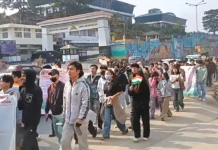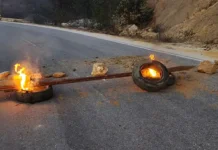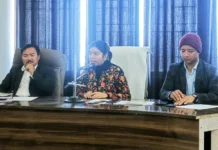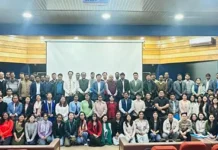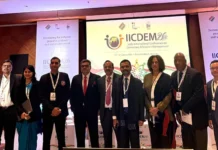
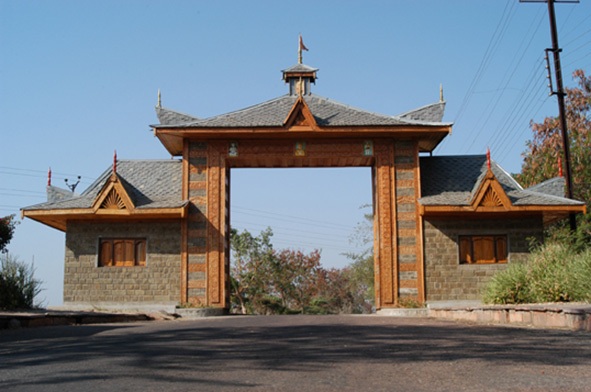
[ Sarit K Chaudhuri ]
Across the globe 18th May, is celebrated as International Museum Day as a part of historical decision by the ICOM (International Council of Museums), a representative organization of museum community, museum lovers and museum professionals across the political boundaries of nation-state.
The theme of celebration for 2020 is ‘Museum for Equality: Diversity and Inclusion’, which was decided last year itself, but incidentally, this question of celebration comes at a time when people across the globe are confronted with one of the greatest humanitarian crisis in the last 100 years or within the life span of existing human population across the ethnic divide.
As a result of this, there is a disconnect between thousands of world museums and millions of museum workers and museum lovers, irrespective of gender and age as the doors of museums remained closed, barring a selective few. However, can we imagine a better theme on international museum day which fanned back to life and old flame in the onward march of our civilization journey, that is the question of ‘equality’ which is inherently linked with the notion of diversity and inclusion – overtly or covertly linked with the ethical dilemmas of human progress.
As the director of a former national museum of our country for more than five years, I can feel the pain of such physical disconnect which the Covid-19 has brought at the door of every museum, which could have been a place of celebration of our memory, history, heritage, creativity, emotions, treasure, performance, cuisines etc., leading to actual or virtual engagements with communities breaking the rural-urban and class divides.
However, this pandemic has also given a big push on the ongoing debate concerning what should be the role of museums as public space in the 21st century?
This has led to rethinking a new definition of museums as Jette Sandahl, Chair of ICOM committee for redefining museum said, that the earlier definition couldn’t articulate need for cultural democracy; notion of inclusiveness in the context of huge diversities and initiation of research which must accommodate most of the crucial emerging issues as well emerging issues of our time, like global warming, climate change, question of sustainability, inequality.
I must add here that the crucial question of public health issues, which is undoubtedly going to be a prime agenda for growth or development for many countries as the ongoing Covid-19 crisis unfolded the naked truth of the nature of existing political-ecology of various modernizing nation-states, along with so called, developed countries of our world.
The executive board of ICOM proposed a new definition in July 1919 in Paris that is still waiting for final acceptance. However, this newly proposed definition is: Museums are democratizing, inclusive and polyphonic spaces for critical dialogue about the past and the future. Acknowledging and addressing the conflicts and the challenges of the present, they hold artefacts and specimens in trust for society; safeguard diverse memories for future generations and guarantee equal rights and equal access to heritage for all people. Museums are not for profit. They are participatory and transparent and work in active partnership with and for diverse communities, to collect, preserve, research, interpret, exhibit, and enhance the understanding of the world; aiming to contribute to human dignity and social justice, global equality and planetary wellbeing.
Undoubtedly, this pandemic has affected most severely the poor and marginalized section of the global communities as heart breaking visual narratives flood the social media, staffed with pro-active measures of the states along with some counter narratives of media as well as contesting voices of political class. However, this crisis has also fiercely affected the cultural sectors, independent artists, creative workers of unorganized sectors and obviously museum professionals or workers who are surviving worldwide through their service to various such museums, and creative forums.
In the context of India, we don’t have any official statistics right now to underscore how many village or local-level museums will be closed or their museum professionals or related workers will lose their basic means of survival, leaving our national and state or district level museums owned by the governments or other big private agencies, but I can reflect on some global examples which the ICOM reveals:
“Already severely underfunded in many places, museums that are temporarily closed today risk to be permanently shut tomorrow. In Italy, the cultural sector is expected to lose three billion euros in the next semester; in Spain, 980 million euros just in April. The American Alliance of Museums (AAM) estimates that a third of museums in the United States will not reopen. Thousands of museum professionals, in particular those in freelance and precarious employments, are on the verge of losing their subsistence or already did”.
The ICOM appealed to the global community by saying, “Museums, as incomparable places of meeting and learning for everybody, will have an important role to play in repairing and strengthening the social fabric of communities affected”. And it came out with certain recommendations to ensure the future of museums, irrespective of their location across the geo-political global space, such as conservation of existing collections, ensuring security of cultural heritage, connecting remote communities, support community resilience and organize webinar for innovation and post-pandemic crisis.
It gives us some sense joy on this very special day when we see that in India some of the museums and museum professionals initiated meaningful steps in conformity with above recommendations of the ICOM. However, in order to ensure the above recommendations are applied in letter and spirit, every museum professional, museum leader and museum administrator of our country, working in local, regional, state or national level institutions, must come out of their comfort zones and gear up so that museums become not only public space for amusement in the 21st century, but also become space for learning, creativity as well as space for empowerment of the marginalized segments of global communities who have already challenged the very notion of ‘people without history’. (The contributor is from the Department of Anthropology, RGU and former Director of IGRMS, (MOC) GoI, Bhopal.)

